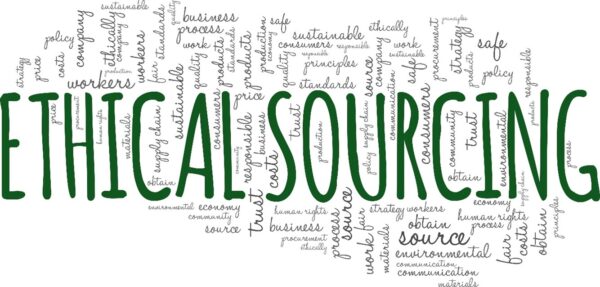In an era where environmental sustainability is no longer a mere trend but a necessity, the responsibility of maintaining ethical supply chains has become increasingly important. Deforestation, one of the most pressing environmental issues, is intricately tied to global supply chains. From the palm oil in your shampoo to the wood in your furniture, the products we use every day may be contributing to the loss of forests worldwide. Stephen Wentzel of Zimbabwe understands this has led to a growing demand for transparency in supply chains, ensuring that companies source their materials ethically and do not contribute to deforestation.
The Environmental Impact of Deforestation
Deforestation is responsible for approximately 10% of global greenhouse gas emissions. Forests act as carbon sinks, absorbing CO2 from the atmosphere. When trees are cut down, not only is this carbon-absorbing capacity lost, but the carbon stored in trees is released back into the atmosphere, exacerbating climate change. Additionally, deforestation leads to loss of biodiversity, soil degradation, and disruption of water cycles, all of which have severe ecological and social consequences.
The primary drivers of deforestation are agricultural expansion, logging, and infrastructure development. For instance, the production of commodities like palm oil, soy, beef, and timber has led to significant forest loss in regions such as the Amazon, Southeast Asia, and Central Africa. These products are often part of complex global supply chains, making it difficult for consumers to know whether their purchases contribute to deforestation.
The Role of Supply Chain Transparency
Supply chain transparency is the practice of making detailed information about the sourcing, production, and distribution processes of products available to stakeholders, including consumers, investors, and regulatory bodies. Transparency is crucial for identifying and mitigating the environmental and social impacts of supply chains, including deforestation.
Consumers today are more informed and concerned about the environmental impact of their purchases. As a result, they demand greater accountability from companies, pushing them to adopt transparent practices. Establishing a transparent supply chain allows consumers to make informed choices, encourages corporate responsibility, and holds companies accountable for their environmental impact.
Certifications and Standards for Ethical Sourcing
One of the key strategies companies use to ensure that their supply chains do not contribute to deforestation is obtaining certifications that verify ethical sourcing practices. Certifications are awarded by independent organizations that assess whether a company’s sourcing practices meet specific environmental and social standards. Some of the most recognized certifications related to deforestation include:
- Forest Stewardship Council (FSC): The FSC certification ensures that products such as timber and paper come from responsibly managed forests that provide environmental, social, and economic benefits. FSC-certified forests are managed to preserve biodiversity, support local communities, and sustain forest health.
- Roundtable on Sustainable Palm Oil (RSPO): RSPO certification is awarded to palm oil producers who comply with environmental and social criteria designed to reduce the negative impacts of palm oil cultivation, including deforestation. RSPO members must demonstrate that their palm oil is sourced from plantations that protect forests and respect the rights of workers and local communities.
- Rainforest Alliance: The Rainforest Alliance certification covers a wide range of products, including coffee, cocoa, and bananas. It ensures that these products are sourced from farms that use sustainable practices to protect forests, conserve biodiversity, and promote the well-being of farmers and workers.
- Soy Moratorium: The Soy Moratorium is a voluntary agreement among major soy traders to not source soy from areas in the Amazon that were deforested after 2006. This agreement has significantly reduced deforestation in the Amazon, demonstrating the power of collective action in supply chain management.
Third-Party Audits and Monitoring
In addition to certifications, third-party audits play a critical role in ensuring supply chain transparency. Third-party auditors are independent organizations that assess whether a company’s operations comply with specific standards or regulations. These audits provide a purely objective evaluation of a company’s supply chain practices, helping to identify areas for potential improvement and ensure compliance with ethical sourcing requirements.
For example, some companies use satellite technology and on-the-ground monitoring to track deforestation in real time. This technology allows companies to identify deforestation hotspots and take immediate action to address any issues in their supply chain. Companies can also use blockchain technology to create an immutable record of transactions, ensuring that every step of the supply chain is transparent and traceable.
Moreover, third-party organizations such as the Global Forest Watch provide open-source platforms for monitoring deforestation. These platforms use satellite data to track forest loss, enabling companies and the public to monitor deforestation and hold companies accountable for their environmental impact.
The Business Case for Ethical Sourcing
While ensuring supply chain transparency and ethical sourcing may involve additional costs, the long-term benefits far outweigh these expenses. Companies that commit to sustainable practices often see improved brand reputation, customer loyalty, and access to new markets. Investors are increasingly considering environmental, social, and governance (ESG) factors when making investment decisions, and companies with transparent supply chains are more likely to attract responsible investment.
Moreover, companies that fail to address deforestation in their supply chains may face legal and regulatory risks. For instance, in the European Union, legislation is being introduced that will require companies to ensure that their products do not contribute to deforestation. Non-compliance with such regulations would result in fines, legal action, and damage to a company’s reputation.
Deforestation remains one of the most pressing environmental challenges of our time, and supply chain transparency is a critical tool in combating this issue. By obtaining certifications, conducting third-party audits, and using innovative technologies, companies can ensure that their products are sourced ethically and do not contribute to deforestation. In doing so, they can help protect the environment while simultaneously building trust with consumers and investors, positioning themselves as leaders in the global movement toward sustainability.
